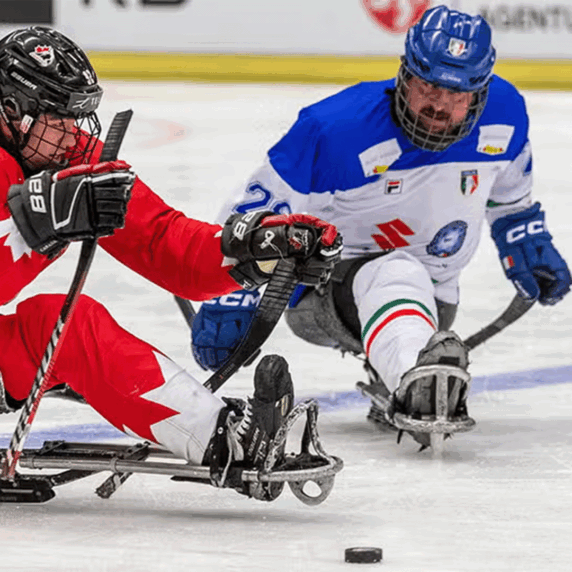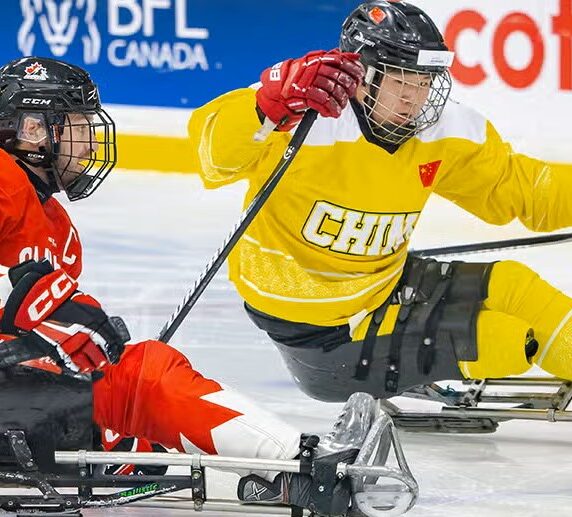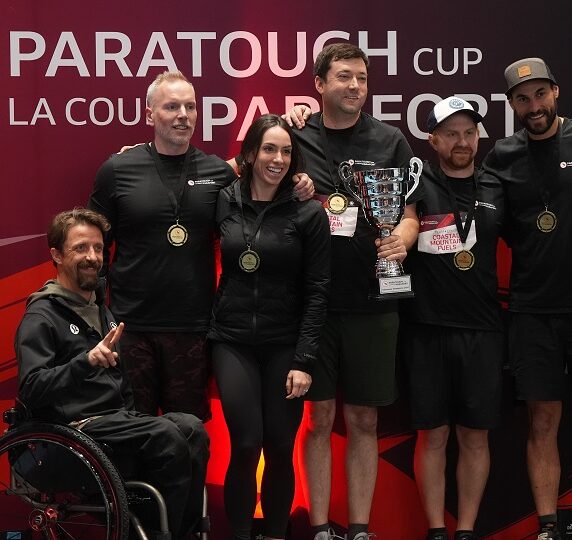Getting better all the time for Kady Dandeneau
''I put a lot of my life into it.”

TORONTO – The peaks and valleys in Kady Dandeneau’s basketball career are a good example of how there can be solutions available to turn the tide in your favour.
The 29-year-old women’s national wheelchair basketball team member was an all-star stand-up basketball player with the University of Northern British Columbia Timberwolves from 2007 to 2013.
In 2010, she suffered a serious knee injury which simply refused to heal. She kept playing for the Timberwolves but eventually needed four operations on her knee after developing a bone defect as a result of a fracture in the femur. She admits she held up hope that she could fully recover from the injury, but her game kept deteriorating.
An astute observer of Dandeneau was former national team women’s wheelchair basketball coach Tim Frick, who like Dandeneau is from Pender Island, B.C., located near the southeast tip of Vancouver Island.
He monitored her standing game and kept contact with Dandeneau knowing the seriousness of her injury could potentially make her a candidate for the wheelchair version of the sport.
“Tim suggested early on I should give the wheelchair game a try,” Dandeneau said. “Still as the injury got worst and I was coming to the realization that I would never play stand-up at the same level, I was still holding on to hope.”
“Then one day in 2015, he just told me he signed me up for a wheelchair basketball tryout in B.C.”
Dandeneau admits she was devastated when she realized her stand-up career was over.
“It was a pretty tough blow,” she said. “Sports, especially basketball, had always been my number-one passion. I put a lot of my life into it.”
But she found a new lease on life in wheelchair basketball.
“Getting the opportunity to compete at a high level again, I can’t even explain how awesome that was. It was a huge turning point.
‘’It made me so happy to compete again and for Team Canada on top of that. It’s had a fantastic effect on my life.”
After the tryout, she attended a Team BC camp in Vancouver and was invited to join the squad for the national championships.
“I thought I was terrible, but I trained with them and it was at nationals that I talked to a Team Canada coach. He suggested I get involved in the national team pool. From there it snowballed.’’
The five-foot-nine Dandeneau learned that mastering the sport would be a career-long experience. There is a piece of equipment she must manage, and different muscles are prioritized in the wheelchair game.
‘’Just learning to work the chair, not falling off, turning around, basically I have to work this machine,’’ she said. ‘’They say it takes five years to master the chair and now I’m at three and a half. I’m a bit better than when I started.
‘’It’s also a complete upper body sport. You’re busting down the court and when it’s time to pass or shoot you can hardly feel your arms anymore.’’
In her national team debut in 2017, Dandeneau helped Canada to gold at the Americas Cup and a year later to the fifth spot at the world championships. Now the next big event is the Parapan American Games in Lima.
The Canadian women need a top-two finish to qualify for the 2020 Paralympic Games in Tokyo.
‘’We’ve been doing a lot of work developing team chemistry,’’ she said. ‘’Don’t be stagnant, don’t be hesitant. We’ve got that attitude now. It’s all about the team.’’
When times do get tough, Dandeneau will surely remember wise words from her first coach.
‘’When I get frustrated, I get his voice in the back in my head,’’ Dandeneau said. ‘’Tim so’s straight about it. He’ll say, ‘don’t do that’. He’s such a great coach. I was lucky to have him impact me.”



"*" indicates required fields
"*" indicates required fields